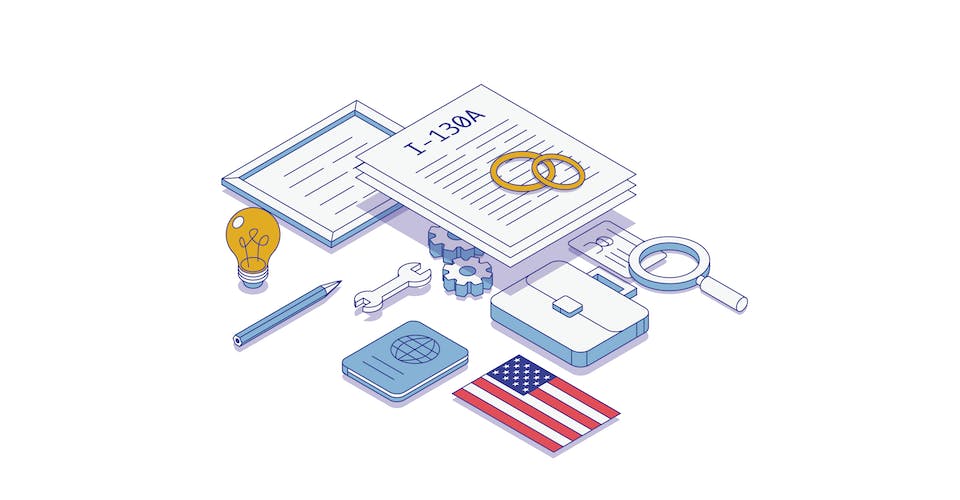Every green card applicant needs to have a medical exam prepared as part of their application package. The point of getting a medical examination is to show the USCIS or the State Department, via an approved doctors visit, that the applicant in question is up to date with their vaccinations, and that they do not have any medical condition that would make them otherwise inadmissible to the United States.
Step 1: Finding a Doctor
The process starts with finding an approved doctor either before you file your I-485 application, or once you have filed but before your green card interview. For consular processing, which does not include an I-485 application, applicants should still have paperwork and documentation ready to bring to their consular green card interview abroad.
In order to find a doctor for your green card application, applicants need to first understand that they cannot simply visit any doctor's office, or one that takes their insurance. Instead, applicants need to use the USCIS or State Department/CDC (for consular processing) databases to locate a doctor who is, in the domestic case a “civil surgeon”—meaning they have received government training for these types of exams, or a panel physician—a medical doctor who has been authorized to conduct immigration medical evaluations by governments of countries who receive migrants.
If you are already in the United States and have filed your I-485 application, and want to use your time wisely to attend a medical exam before your green card interview, please use the following USCIS database, which can locate approved doctors once you enter your zip code: https://my.uscis.gov/findadoctor.
If you are abroad and need to find a panel physician, the USCIS site listed above will not be relevant as it pertains to U.S. zip codes only. Instead, applicants should go to the CDC Panel Physician Portal to seek guidance. The link is available here.
Step 2: Attending and Understanding the Medical Exam
The United States has certain admissibility requirements according to immigration law. For example, in order to prevent infectious diseases, all green card applicants need to have certain vaccinations before they can become legal permanent residents. The State Department lists all of the relevant vaccinations that panel physicians are trained to administer. The list is available here.
In addition to immunizations, the green card medical exam will consist of a physical or a basic checkup. Included in the physical, the doctor will go over each applicant’s medical history with respect to the following:
- Communicable disease history (TB, syphilis, etc.)
- Any substance abuse or history of using drugs/substances
- Physical or other mental health problems and list of current medications
- Other conditions that might make it difficult to live independently
While the test may differ slightly whether one is in the United States or whether one is in a foreign country, the categoricals are the same. Applicants, for example, will need to submit a urine sample for any STI and a blood test for syphilis. Accordingly, all applicants will have to undergo a vaccination screening to determine what shots they need (and their associated costs), and also a drug and alcohol questionnaire which applicants should truthfully submit any past substance abuse.
What to Bring to my appointment?
All applicants who are applying from within the United States need to print out and bring a PDF of the most recent and updated I-693, Report of Medical Examination and Vaccination Record. Applicants should notice that pages 7 through 14 on this are all of the medical exam questions and information the doctor will be filling out. It’s important for both the physician and the applicant, to sign this form prior to the applicant’s green card interview in the United States.
For those applying abroad, an I-693 form is not necessary. Instead, applicants need to bring a printed out green card appointment letter from the NVC. They can print this directly from their email if they need to. According to several consular processing guides, a panel physician will not perform a medical exam on a green card applicant unless they arrive at the doctor's office with this letter.
In general, all applicants, whether abroad or based in the U.S., should also consider the following for their exams:
- Insurance information or card
- Photo ID/passport
- Copies of previous immunization records
- A referring letter from another primary care physician stating certain medical conditions and any treatment plan
- Payment for the medical exam
Note: If an applicant knows they will need vaccinations, they should be prepared to pay out of pocket if they do not have insurance in the United States. Vaccinations can cost hundreds of dollars and follow up appointments for boosters may be needed.
Step 3: Bring the Sealed Records to your green card interview
Once the exam is complete, the physician will hand you an envelope with your medical records (this is the case for domestic and abroad based exams). Applicants are not supposed to break the seal of this envelope and are supposed to present the results during their green card interview. They may be given other copies of results for their own personal disclosure.
Any questions or doubts? Contact our legal team at contact@visa2us.com.














